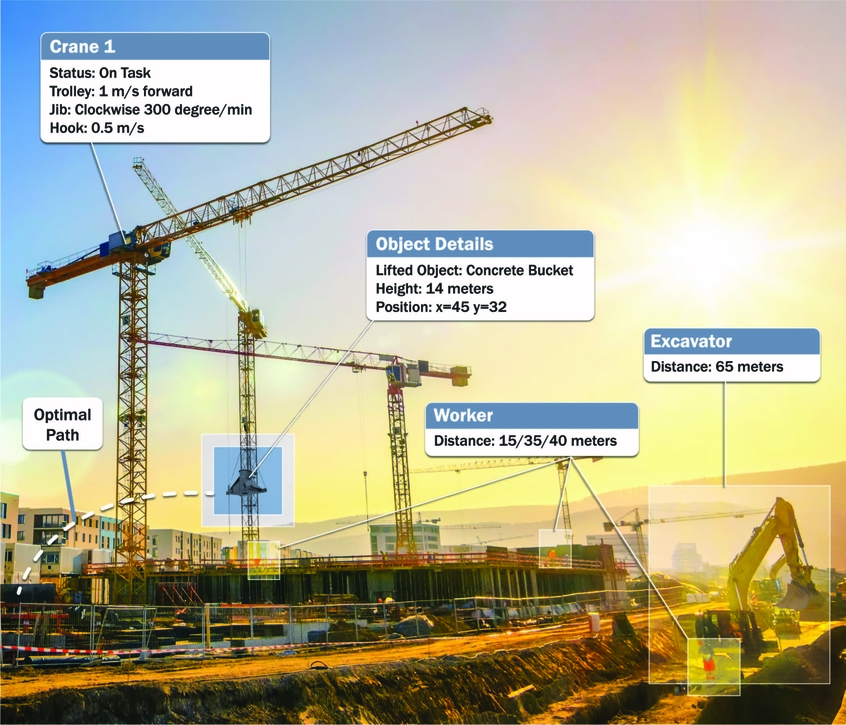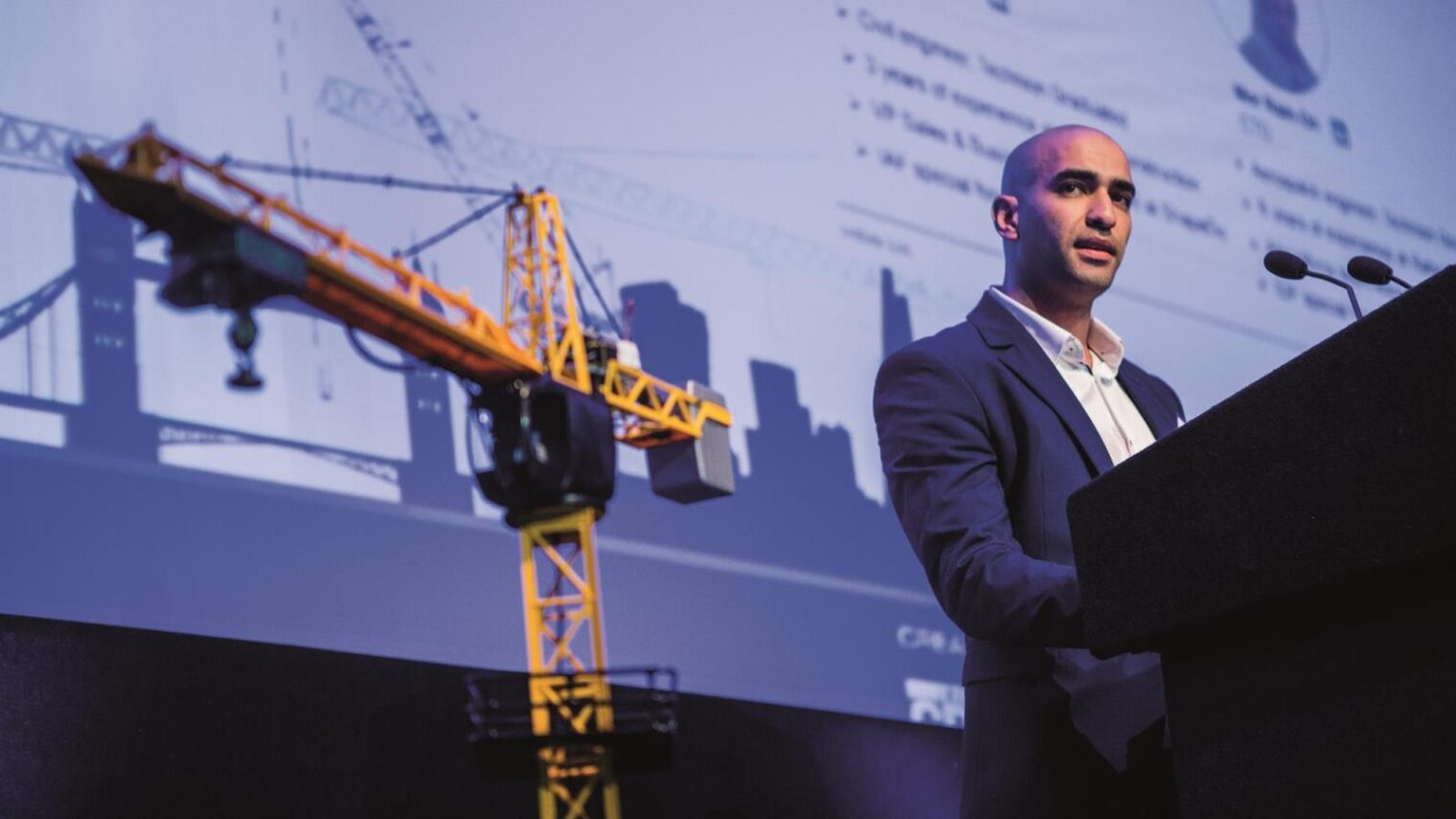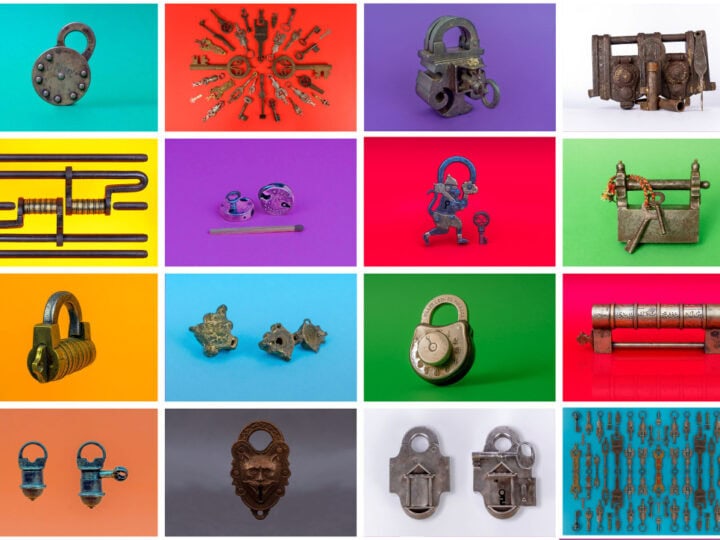The world’s first autonomous construction crane is coming from a little startup in northern Israel, IntSite.
The prototype was debuted at the 2017 International Tower Crane Conference in London, where it raised considerable interest in the industry.
With the goal of increasing safety, efficiency and productivity, the crane now under development will employ computer vision, machine- and deep learning to identify workers and objects in close proximity in order to avoid collisions and hasten project completion by 20-30 percent.
The latest addition to Israel’s growing construction-tech sector, IntSite was founded last year by twin brothers Tzach and Mor Ram-On, graduates of the Technion Israel Institute of Technology, at Terra Venture Partners’ TerraLab in Yokne’am. Tzach studied civil engineering and Mor studied aerospace engineering.
Tzach previously worked as a site engineer for Electra Construction, one of the biggest general contractors companies in Israel, while Mor served as a guidance, navigation and control engineer in the Missile Division of Rafael Advanced Defense Systems and then as the algorithms group team leader at Cnoga Medical.
The twins put their heads together at IntSite, writing algorithms to control the trajectory and navigation of cranes for more efficient and intelligent operation without the need for operator decision-making under often difficult conditions.
Last March, IntSite signed a strategic partnership agreement with BuildUp, the innovation arm of Israel’s largest construction and infrastructure company, Shikun & Binui, and its construction subsidiary Solel Boneh. And in May, IntSite raised $1.35 million in a pre-seed round from Terra Venture Partners and the Israeli Innovation Authority.
https://youtu.be/cFMj97GTyTw
More than 100,000 tower cranes are active around the world today.
According to International Cranes and Specialized Transport, the construction industry is riddled with a “remarkable level of inefficiency, including poor planning, mismanagement, and human error – as well as astonishingly outdated equipment – and the crane is at the top of the list.”
The trade magazine says the crane, which takes center stage on any construction site, hoists the vast majority of all materials and equipment onsite and performs “innumerable tasks on every type and size of project” and yet it “delivers an estimated efficiency of only 55 to 65%, regularly causing the bottlenecks that lead to costly delays.”
The basic design of the construction crane remains unchanged since its invention by the ancient Greeks in the 6th century BCE.
IntSite agrees: “30% of cranes in use are considered obsolescent, and potentially dangerous to workers on site, passersby and operators, as operations are often conducted in uncontrollable environments.”

The autonomous crane is undergoing testing in Israel and is expected to be piloted in UK and France in 2019.
“On average, 98% of construction mega projects go over budget, according to McKinsey. And in a multi-trillion dollar global industry like construction, even the slightest uptick in efficiency could amount to hundreds of millions in savings,” says IntSite.
IntSite also is developing solutions for anti-collision and advanced driver assistance systems.

















